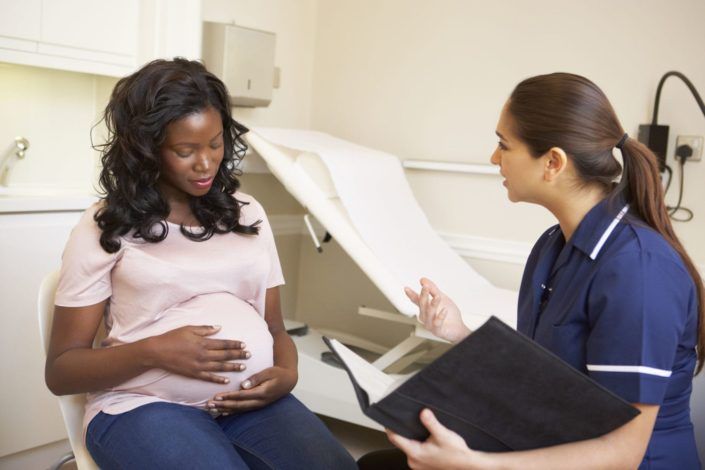Screening Within Pregnancy – Genetic Screening
Screening in Pregnancy
Pregnancy screenings can offer valuable information before your child is born. For instance, genetic screenings can determine your baby’s risk for several birth defects. This consists of Down syndrome, trisomy 18, spina bifida, or other birth defects.
Screenings usually do not provide a diagnosis. They can not determine for certain your baby includes a birth defect. They let you know whether your baby reaches increased risk for the most frequent ones. If the chance is high, you might choose to execute a diagnostic test. Sometimes diagnostic tests tend to be more invasive. For this reason screening can be an important first rung on the ladder.
Most screenings come in the proper execution of a blood test. Your physician may follow up having an ultrasound (an image of the infant). Your doctor will think about the mother’s age and ethnic background. They’ll consider other risk factors, like a genealogy of a birth defect. This may mean that your child reaches higher risk for exactly the same birth defect.
Way to improved health
Most prenatal screenings occur if you are 15-20 weeks pregnant. The principal screenings are optional. But all pregnant folks are offered the tests. Some choose never to do the screenings. You can find three primary screenings that start out with a blood test: triple screen, quad screen, and penta screen. The blood tests search for different proteins in the blood.
- Triple screen: this test measures three substances in a pregnant person’s blood. These substances include alpha-fetoprotein (AFP), human chorionic gonadotropin (hCG), and unconjugated estriol.
- Quad screen: A quad screen measures four things in a pregnant person’s blood. This consists of AFP, hCG, unconjugated estriol and inhibin A.
- Penta screen: A penta screen measures every one of the above, in addition to the substance hyperglycosylated human chorionic gonadotropin.
- Cell-free DNA: this newer blood test can be carried out after 10 weeks of pregnancy. This blood test could be more sensitive compared to the others. It collects DNA from the infant that is within the mother’s bloodstream. It uses these DNA fragments to predict the baby’s risk for birth defects.
None of the blood screenings pose a risk to mom or baby. If you opt to execute a screening, you as well as your doctor can decide which is best for you personally.
Facts to consider
If blood tests indicate your child is at increased threat of a birth defect, your physician will observe up with additional tests. These tests include:
- High-resolution ultrasound: This called an even II ultrasound. It offers greater detail about possible birth defects. It could check your baby’s age, brain, spinal-cord, kidneys, and heart. It is almost always completed between 18 and 22 weeks of one’s pregnancy.
- Chorionic Villus Sampling (CVS): That is an invasive test. Your physician will collect a little little bit of the placenta, called chorionic villus. It really is checked for chromosomal or genetic disorders. A CVS test emerges to individuals who received an abnormal result on an initial trimester screening test. Also, it really is offered to individuals who could possibly be at higher risk. It really is completed between 10 and 12 weeks of pregnancy.
- Amniocentesis: That is an invasive test. Your physician will collect handful of amniotic fluid from the region around the baby. It really is tested for several proteins. This may determine whether your child has Down syndrome or other genetic problems. It is strongly recommended for women who had an abnormal pregnancy screening blood test. It really is completed between 15 and 18 weeks of pregnancy.
Most diagnostic tests can be found to people who have higher risk pregnancies. This consists of individuals who are 35 years or older, individuals who have had a previous pregnancy suffering from a birth defect, individuals who have chronic diseases such as for example lupus, raised blood pressure, diabetes, or epilepsy, or individuals who use certain medications.
If your physician discovers a birth defect through the pregnancy or at birth, they could refer one to a genetic counselor. That is an expert who is able to explain the test outcomes, order additional testing, and refer one to a doctor who focuses on high-risk pregnancy or genetic conditions.
